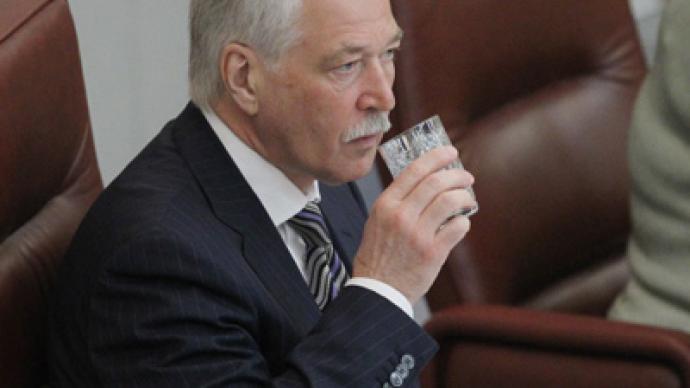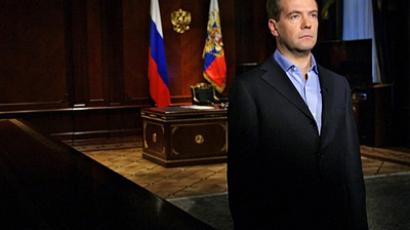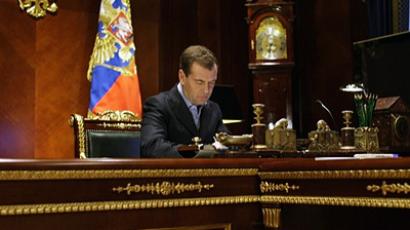Reducing electoral threshold task for next parliament – Duma speaker

Boris Gryzlov said on Wednesday that the question of whether or not to reduce the threshold barrier for Duma elections will only be answered at the next parliamentary convocation.
The Russian electoral system is going to be developed, Gryzlov told journalists. Introducing a lower threshold barrier for parties to enter the State Duma is possible, he noted. However, the issue may be raised by the lower house at the next convocation rather than by the current deputy corps, said the speaker, who is also the chairman of the ruling United Russia party’s supreme council.The current threshold barrier to the lower house is 7 percent of the total vote gained during the parliamentary elections. It was increased from 5 percent in 2007.In some ways the lower barrier, which some political parties had previously failed to clear, has already been used. Following President Dmitry Medvedev’s annual address to parliament in 2008, the State Duma allowed parties that gain from 5 percent to 7 percent of the vote “to get one or two seats in the parliament.” This largely symbolic gesture allows leaders of opposition parties to use the rostrum of the parliament and articulate their programs. In an interview with the Financial Times published this week, Medvedev suggested that the current barrier should be reduced to 5 or even 3 percent, explaining that the parliament lacks right-wing deputies. The president argued that changes to the electoral legislation are overdue because the structuring of the political system “is finished.” Even United Russia, the party that holds the majority in the State Duma, understands this as well, he ascertained. It may be difficult for the ruling party to abnegate its current advantages, but political competition is necessary for the country, Medvedev stressed. The State Duma “must represent the whole political spectrum,” the president argued. The country cannot have hundreds of parties, but the threshold should be reduced for the sake of “better political competition.” The topic was discussed again on Tuesday, and the president “stressed this issue is very important for small parties,” Gryzlov said. He added that the next steps for developing Russia’s electoral system will be made by the new deputy corps. In recent weeks, analysts have been actively discussing the electoral prospects of the Right Cause party which is trying to modernize itself to clear the electoral barrier. In the same interview, Medvedev suggested that Finance Minister Aleksey Kudrin would be a perfect leader for this right-wing party established in 2009. Kudrin has refrained from commenting. So far, the Right Cause has failed to reach out to voters. The party is to hold its congress on June 25 and is expected to choose billionaire Mikhail Prokhorov as its new leader.














